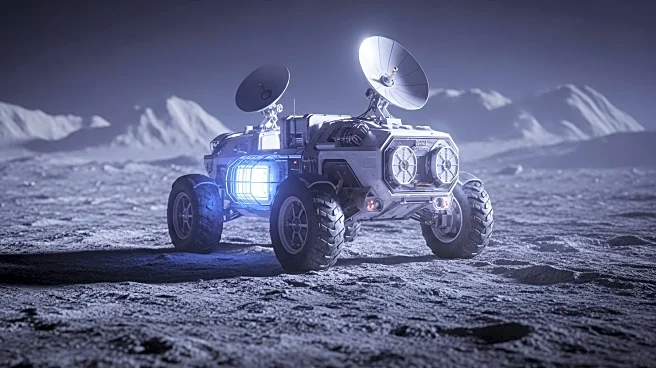What is the story about?
What's Happening?
Astrobotic Technology and American Honda Motor Co. have announced a partnership to explore the integration of their power generation and storage technologies for lunar missions. The collaboration aims to support long-duration astronaut missions on the Moon by utilizing Honda's regenerative fuel cells and Astrobotic's LunaGrid power system. This initiative will conduct a feasibility study to determine how Honda's regenerative fuel cells can work with Astrobotic's vertical solar array technology to provide continuous power during lunar nights. The partnership seeks to make sustained lunar infrastructure economically viable by boosting mission performance and data return.
Why It's Important?
The collaboration between Astrobotic and Honda is significant as it addresses the critical need for reliable power sources for future lunar missions. By enabling survival through harsh lunar conditions, the partnership could extend mission durations from days to years, enhancing scientific research and exploration capabilities. This development is crucial for the U.S. space industry, as it could lead to more cost-effective and sustainable lunar missions, potentially positioning the U.S. as a leader in lunar exploration technology. The initiative also highlights the growing trend of cross-industry collaborations in space exploration, which could drive innovation and reduce costs.
What's Next?
Astrobotic and Honda plan to conduct a one-year simulation of solar illumination profiles at various sites on the lunar south pole. These tests will help optimize the size of Honda's regenerative fuel cells to meet the needs of future lunar missions. The results of this study could pave the way for the deployment of integrated power systems on the Moon, supporting long-term human presence and scientific research. The success of this collaboration could encourage further partnerships between technology companies and space agencies, accelerating advancements in lunar infrastructure.

















